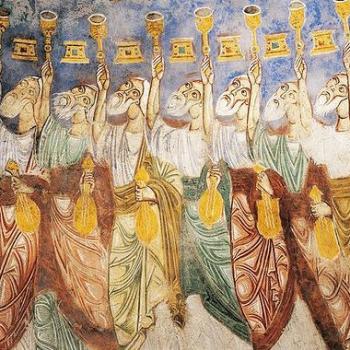How Many Basic Christianities Are There?
*Note: If you choose to comment here, make sure your comment is relatively brief (no more than 100 words), on topic, civil and respectful in language (not hostile or argumentative), and includes no links or photos.*
To clear away predictable objections, I will say “up front” that I know very well there are many types of Christianity. The question I am asking and attempting to answer here is whether there are really only three basic types of which all others are forms or manifestations with their own peculiarities and particularities.
I think so. So what are they? Eastern Orthodox, Catholic (including Roman Catholic), and Protestant.
*There are Catholic Churches that are not Roman Catholic but hold to the same basic beliefs with the exception of the infallibility of the bishop of Rome*
Down at the bottom, at the most basic foundations, there are three basic approaches to Christian thought: Orthodox, Catholic, and Protestant.
Orthodoxy believes nature and grace are inseparable; nature itself is graced and God’s desire and plan is for the entire creation to be deified. That was God’s plan from the beginning; even if Adam and Eve had not fallen the incarnation would have happened and not only humanity but creation itself deified (with God’s energies while preserving God’s essence as unique and always transcendent).
Catholic thought believes nature and grace are separable, but nature is “open to grace” and “grace fulfills nature.” Whether there can be or ever was or is such a thing as “pure nature” is debated among Catholic theologians. Still, the “orders” of nature and grace are held separate even if, as Karl Rahner argued, grace is universally given to nature (the so-called “supernatural existential”).
Protestantism separates nature and grace such that, since the fall or because of the fall, however it is understood, nature is broken and devoid of grace. Grace can heal the brokenness of nature, but only eschatologically and supernaturally. That healing can begin before the eschaton, but only in the eschaton will nature be completely healed by grace. But grace will always remain over nature. At least since the fall, nature is not open to grace and grace does not fulfill nature (Luther and Barth).
These are incommensurate visions of nature and grace that keep Orthodox, Catholic and Protestant Christians in a state of inability to understand each other. Many attempts have been made to build bridges between or create hybrids of two or all of these, but so far they have been unsuccessful. And the issue of the relationship between nature and grace is fundamental to everything else.

















